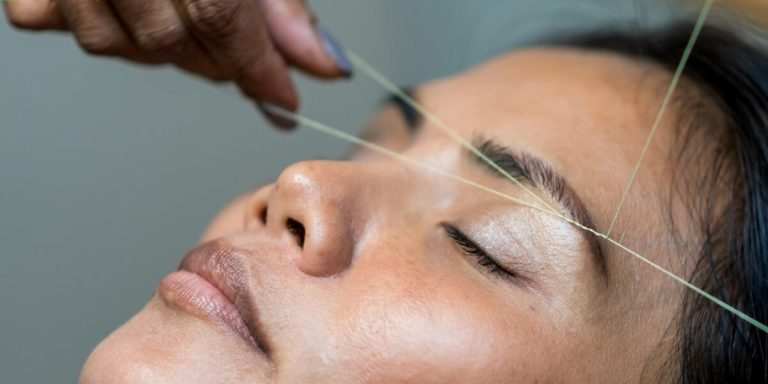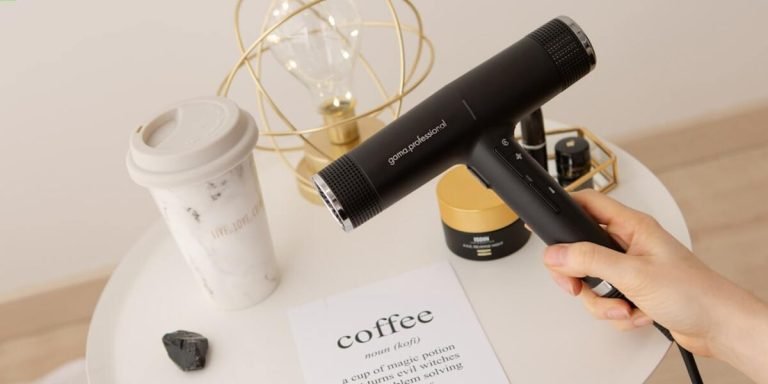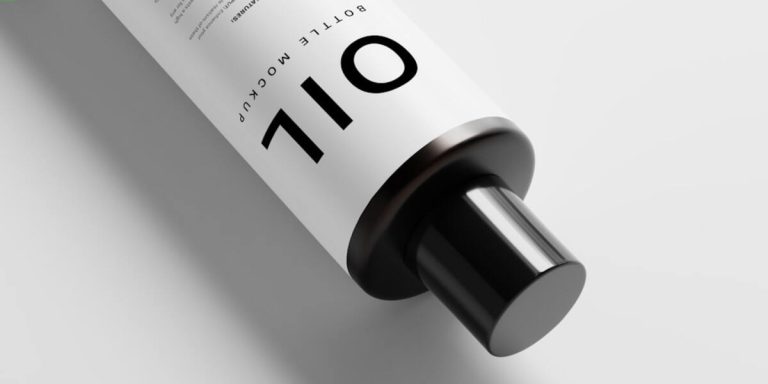Are Ingrown Hairs Bad for Your Health? Unveiling the Truth Behind Common Misconceptions
When it comes to maintaining hair health, one of the common but often overlooked issues is ingrown hairs. A question that frequently arises in this context – “are ingrown hairs bad for your health?” While they’re commonly seen as a minor inconvenience or cosmetic issue, their impact on our overall skin and hair well-being shouldn’t be underestimated.
Contrary to popular belief, the problem with these unruly strands goes deeper than causing razor bumps or interfering with smooth shaving. Ingrown hairs can lead to more serious complications such as infection if not adequately managed. As you delve into understanding how they affect your body, debunking myths becomes crucial in order to prevent any potential harm caused by them and maintain optimal hair health.
Did you know?
Contrary to popular belief, ingrown hairs aren’t harmful for overall health. However, they can lead to uncomfortable complications like skin infection and darkened skin if not properly managed.
Understanding Ingrown Hairs and Their Impact on Scalp and Hair Health
Ingrown hairs are a common issue many of us face, but have you ever wondered if they could detrimentally impact your scalp and hair health? The answer is yes. An ingrown hair occurs when the shaft of the hair curls back or grows sideways into the skin, often causing inflammation and discomfort.
While these may seem like minor inconveniences on the surface level, over time they can lead to severe damage to your scalp’s health.
The larger concern arises from recurrent instances of inflamed ingrown hairs which might result in an unhealthy scalp environment detrimental for proper growth and maintenance of healthy hair. This cycle creates stress conditions for both existing as well as new follicles leading to issues such as dullness, dryness or potentially even premature shedding.
Identifying Common Causes of Ingrown Hairs
Ingrown hairs are often a minor, albeit frustrating, inconvenience. However, the question “are ingrown hairs bad for your health” arises due to their potential impact on our overall hair and scalp health. Let’s dig into some of the common causes that lead to these notorious ingrown hairs.
Firstly, we have improper shaving techniques at fault. When you shave too close or against grain direction, it encourages the hair to grow sideways back into the skin rather than outward – thus making way for an irritating razor bump or what is commonly known as an ‘ingrown’.
Secondly in line comes clogged pores – when excessive oil and dead skin cells choke follicles making them imprison new growth beneath surface level creating looping strands under your skinscape.
Thirdly frequent use of tight hats or head coverings can influence this adverse phenomenon. The constant pressure they apply interrupts normal hair growth pattern leading those meek sprouts astray i.e., forcing them back inside instead of growing outwards through pore opening naturally.
Lastly certain genetic factors render people more susceptible towards developing ingrowns including having densely curly thick locks which tend toward coiling within microskin layers before successfully breaching its boundary; very much similar to how climbers lacking adequate mountaineering gear would find it difficult scaling steep cliff faces unaided.
Potential Risks Associated with Chronic Ingrown Hairs
Firstly, chronic ingrown hairs can lead to skin irritation which often manifests as small bumps or even boils on the scalp. These irritations, apart from being uncomfortable and painful at times, disrupt the natural integrity of your skin barrier making it more susceptible to infections.
Secondly, prolonged inflammation around an ingrowing hair follicle may aggravate nearby healthy follicles causing them to weaken over time. Weak strands easily break off leading to thinning patches – a nightmare scenario for anyone interested in robust hair health.
Thirdly – and perhaps most concerning–chronic cases might result in permanent scarring due its continuous trauma inflicted upon certain areas of the scalp during attempts of removing these stubborn curled back foreign bodies! Imagine having patches where nothing grows because there was too much handling previously; certainly far from ideal!
Finally yet importantly we must mention why prevention truly better than cure comes into relevancy here: avoiding any form future complications related unhealthy practices such forcibly digging out object under cover dark night has own set benefits like keeping infection bay further safeguarding overall wellbeing our tresses coupled with sustaining good hygiene levels.
Effective Management Strategies for Preventing Ingrown Hairs
Ingrown hairs, though often overlooked as a minor inconvenience, can indeed pose notable risks to your health if left untreated. They occur when the hair curls back or grows sideways into the skin instead of rising up from it. It’s not just about an unsightly bump; persistent ingrown hairs may lead to infections and darkened skin which might be harmful for those with sensitive dermis.
Kickstart your ingrown hair prevention regimen by exfoliating regularly. Use mild products suited for your skin type to ensure gentleness while removing dead cells that block the path of healthy follicle growth. Adopt correct shaving techniques as well:
- Shave in the direction of hair growth
- Avoid close shaves to minimize sharp-ended regrowth that may burrow under the skin, causing bumps
Maintain hygiene to prevent ingrown hairs:
- Always use clean razors free from bacteria
- Prevent bacteria from entering micro-wounds caused during shaving, which could lead to severe inflammations
Essential Tips for Safe Hair Removal Practices
Practicing safe hair removal methods is crucial to keep ingrown hairs at bay. After all, one might wonder – are ingrown hairs bad for your health? Absolutely!
Ingrown hairs not only cause discomfort but also pose serious threats such as scarring, infection and darker skin.
1. Pick a Safe Hair Removal Method: Choose the hair removal method that suits your body type best. Shaving is quick and easy whereas waxing pulls out the entire hair from its root which delays regrowth.
2. Proper Tool Maintenance: Rinse off blades with warm water after each swipe when shaving and change them regularly to avoid bacterial build-up which could potentially lead to infections causing more harm than good.
3.Correct Technique matters: Whether you’re using razors or epilators, always go in the direction of natural growth rather than against it helps minimize irritation hence reducing chances of pimple-like bumps showing up once you finish up.
4.Pre & Post Care Rituals: Exfoliate before commencing any kind of depilation procedure; this opens up pore follicles making it easier for strands to be plucked away thus declining their risks turning into frustrating little nuisances we often refer so dreaded term ‘Ingrowns’. Moisturize afterwards restore moisture stripped during session help soothe inflamed patches if there’s any left around resulting better overall experience much healthier looking surface areas result end day!
Incorporating Proper Hygiene in Your Hair Care Routine
Maintaining good hygiene is crucial in preventing ingrown hairs and fostering overall hair health. Are ingrown hairs bad for your health? They might not be life-threatening, but they surely can cause unnecessary discomfort and infections if left untreated.
Proper washing is the foundation of any effective grooming routine. Regular shampooing helps remove dirt, sweat, and excess oil that may clog follicles leading to unhealthy strands or even worse – ingrown hairs. However remember that ‘regular’ means different things to different people based on their scalp type: oily or dry.
Next comes exfoliation which should ideally become a part of your weekly regimen especially if you frequently get those pesky razor bumps everywhere you shave off body hair. Gently scrubbing away dead skin cells clears up blocked pores therefore reducing chances of encountering an unruly bump hereafter.
Changing towels often may seem trivial yet it’s necessity cannot be stressed enough considering bacteria loves moist environments! The same logic applies while choosing non-comedogenic products devoid of pore-clogging ingredients thus keeping future irritations at bay.
Hair brush cleanliness shouldn’t be overlooked also because combs are breeding grounds for germs which transfer from dirty surfaces onto our heads (including hands) during brushing sessions; hence always make sure brushes undergo thorough washes once every week at least!
Treating Ingrown Hairs: Best Practices and Remedies
Ingrown hairs can create discomfort and displeasure. They typically occur from hair shaving or waxing, causing the hair to grow back into its follicle instead of rising up from it. It’s an issue that affects many individuals worldwide but how detrimental are they really?
How bad for your health are ingrown hairs?
Continuous scratching and picking at ingrown hairs create a vulnerability in our skin’s defense system, paving way for potential infections caused by bacteria or viruses found on our fingers. Infected ingrowns could lead to scarring, hyperpigmentation, and in rare cases systemic infection if left untreated.
- Over-the-counter topical creams with salicylic acid to exfoliate dead cells and free trapped hair under the skin.
- Topical antibiotics for signs of bacterial infections when inflammation occurs.
The role played by lifestyle habits & good hygiene practices cannot be overstated either: frequent washing using mild soaps accompanied by gentle scrubbing aids removing dead cells while keeping area clean arrests spread any possible infection besides providing optimum conditions aiding natural expulsion process completion successfully without medical intervention needed necessarily.
Appropriate Skincare Products to Alleviate Irritation
Firstly, using a mild exfoliator is imperative in maintaining hair and skin health. By gently removing dead cells from the surface of your skin, exfoliators allow newly grown hairs to break through unobstructed, reducing the chance of them curling back under. Stick with natural ingredients like apricot kernels or jojoba beads as harsher chemical scrubs may further irritate sensitive areas.
Next on our arsenal should be an antibacterial soap or cleanser designed for sensitive skin types which helps prevent infection while soothing inflammation around troubled spots where you are likely experiencing ingrown hairs.
Thirdly, consider integrating a quality moisturizer into your routine because dryness can exacerbate complications related to hair growth patterns like causing more frequent occurrence of ingrown hairs. A good formula rich in nourishing oils such as almond oil or argan oil provides ample hydration without clogging pores; thus keeps things smooth sailing!
When to Seek Medical Advice for Recurrent or Infected Ingrowns
Understanding when to seek medical advice for recurrent or infected ingrown hairs is crucial to maintaining your overall hair health. If you’re constantly asking yourself, “are ingrown hairs bad for your health?”, it’s essential that you know the signs of a problematic case.
Recurrent and persistent instances of ingrowns can lead to uncomfortable situations which might need more than just home remedies. In severe scenarios, these stubbornly curling strands may transform into painful cysts or become infected. This could potentially result in unsightly scarring if not managed correctly.
When tackling recurring issues with ingrown hair, keep an eye out for relentless discomfort along with redness around the affected areas even after self-treatment attempts have been made. Watch out also if there are indications of pus build-up in those regions as this suggests infection risk – right from mild bacterial infections all the way up till staphylococcus inside our skin layers causing cellulitis – a serious condition wherein one requires immediate professional help.
Medical attention becomes inevitable when over-the-counter solutions don’t provide relief nor do they prevent recurrence within reasonable time spans (typically between two weeks). If symptoms persist beyond such stipulated times despite adhering strictly towards supposed best practices at play here then it’s high time making appointments definitely sounds like sound advice indeed!
Conclusion
In conclusion, “are ingrown hairs bad for your health?” is not a simple yes or no question. It generally depends on how you handle them and maintain overall hair hygiene. While they can cause discomfort, they typically don’t pose any serious threats to our health unless left untreated or improperly handled which could lead to infection.
Let’s consider this the starting point of us debunking common misconceptions about hair health together! If you’d like more solid information that breaks down complex concepts into digestible chunks, feel free to browse around our website. There’s a wealth of knowledge waiting just for you in the realm of all things related to ‘Hair Health’.
After all, understanding precedes caring – And we’re here every step along your journey towards healthier hair habits.







